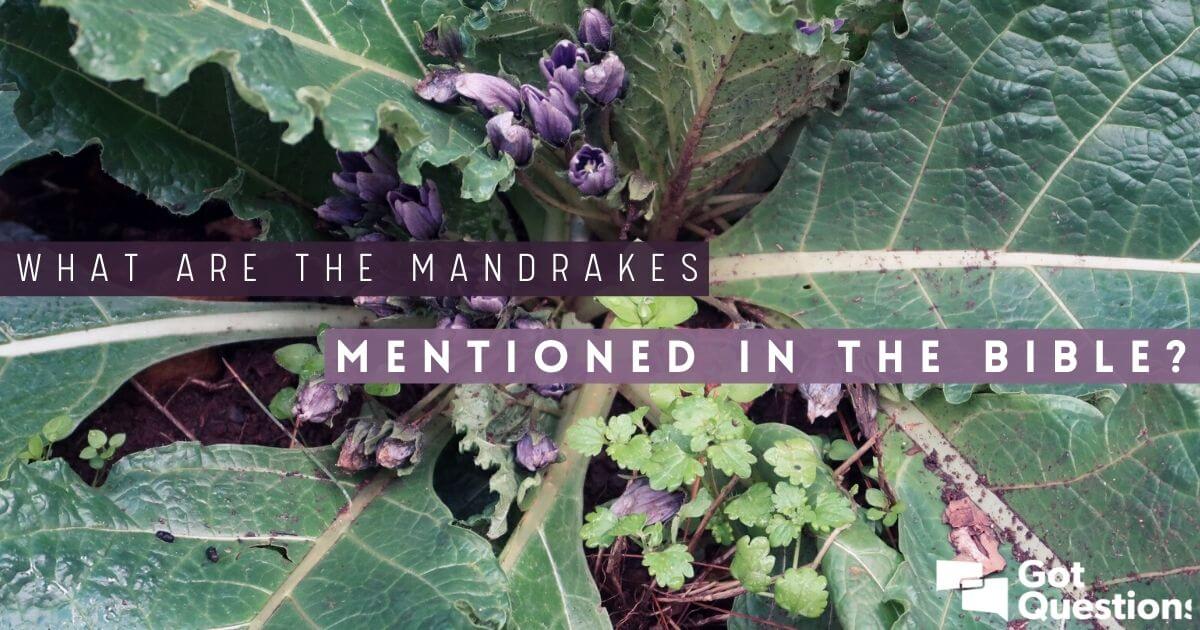Have you ever wondered about the significance of mandrakes in the Bible? These mysterious plants have captured the curiosity of many scholars and readers over the years. In this blog post, we will explore the mentions of mandrakes in the Bible, uncovering their symbolism and cultural significance during biblical times.
By delving into the biblical references to mandrakes, we gain a deeper understanding of the context in which these plants were mentioned and their relevance to the stories they appear in. Join us on this journey as we unravel the mystery behind mandrakes in the Bible and discover the valuable insights they offer about ancient beliefs and practices.
The Biblical Significance of Mandrakes: An In-Depth Exploration
The mention of mandrakes in the Bible can be found in the book of Genesis, specifically in Genesis 30:14-16. In this passage, Reuben, the son of Leah and Jacob, brings mandrakes to his mother Leah. Mandrakes were believed to have aphrodisiac properties in ancient times and were also associated with fertility.
Mandrakes are a plant with a unique history and folklore surrounding them. In the Bible, they are described as having a pleasant fragrance, which adds to their mystique. The fact that Rachel desired the mandrakes brought by Reuben shows the value placed on them during that time.
The mention of mandrakes in Genesis sheds light on the customs and beliefs of the ancient Israelites. It provides a glimpse into the daily life and practices of that era. The use of mandrakes in the Bible also raises questions about the significance of plants and herbs in biblical times.
The story of Reuben bringing mandrakes to Leah is a small but interesting detail in the larger narrative of the patriarchs and matriarchs of Israel. It showcases the relationships and dynamics within Jacob’s family and adds depth to the characters involved.
Overall, the mention of mandrakes in the Bible serves as a reminder of the rich tapestry of traditions, beliefs, and customs that are woven throughout the biblical text. It invites further exploration and study into the cultural context of the time and the symbolism attached to various natural elements mentioned in the scriptures.
Why did Rachel want mandrakes?
In the Bible, Rachel wanted mandrakes because she believed they would help her conceive a child. Mandrakes were seen as having fertility properties at that time. Genesis 30:14-16 recounts how Reuben, Leah’s son, found mandrakes in the field and brought them to his mother. When Rachel saw the mandrakes, she asked Leah for some. Leah responded by saying, “Is it a small matter that you have taken away my husband? Would you take away my son’s mandrakes also?” Eventually, Rachel struck a deal with Leah where she agreed to let Leah spend the night with Jacob in exchange for the mandrakes. This story highlights the importance of fertility and the lengths to which women in that time period would go to conceive children.
What were mandrakes used for?
Mandrakes are mentioned in the Bible in Genesis 30:14-16. In this passage, Rachel asks Leah for some of the mandrakes that Reuben had found in the field. Mandrakes were believed to be an aphrodisiac and were associated with fertility and conception in ancient times. The story in Genesis suggests that Rachel believed consuming the mandrakes would help her conceive a child.
What is the biblical meaning of mandrakes?
In the Bible, mandrakes are mentioned in Genesis 30:14-16. Rachel asks Leah for some of the mandrakes her son had found. Mandrakes were believed to enhance fertility and were associated with folk remedies for infertility. The biblical meaning of mandrakes in this context is symbolic of fertility and the desire for children. Rachel’s request for mandrakes reflects her longing for children and her belief in the power of these plants to aid in conception.
Are mandrakes used today?
In the Bible, mandrakes are mentioned in the book of Genesis. Rachel, who was barren, asked Leah for some of the mandrakes her son had found. It was believed that mandrakes could help with fertility. However, mandrakes are not commonly used today for medicinal or magical purposes as they were in ancient times. The plant species identified as mandrakes in the Bible is uncertain, but it is likely to be either Mandragora officinarum or Atropa mandragora. These plants contain toxic compounds and are not safe for consumption.

